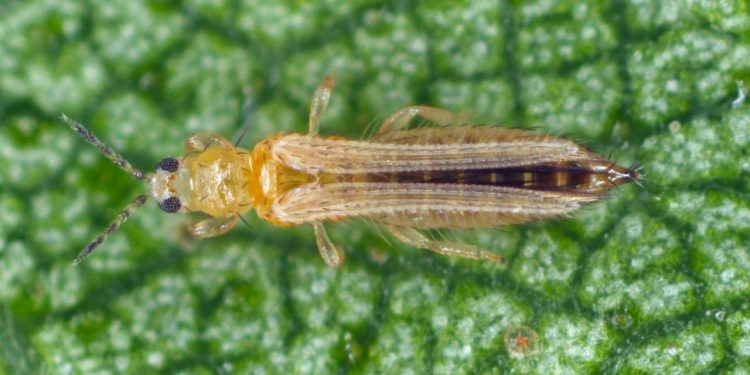#agriculture #pestcontrol #RNAi #Frankliniellaspp #cropyield #sustainability
Frankliniella spp., commonly known as thrips, are tiny insects that can have a big impact on crops and gardens. These pests feed on plants, causing damage to the leaves, flowers, and fruits, leading to reduced crop yields and aesthetic damage.
To combat the devastating effects of thrips, farmers and gardeners have turned to various methods, including chemical pesticides and biological control agents. However, these methods have their limitations, including potential harm to non-target species and the development of resistance in thrips populations.
As a result, researchers are exploring alternative approaches to controlling thrips populations. One promising avenue is the use of RNA interference (RNAi) technology, which targets specific genes in thrips and disrupts their ability to reproduce and survive.
The development of RNAi-based thrips control could have significant consequences for agricultural productivity and sustainability. By reducing the need for chemical pesticides and other control methods, RNAi technology could help protect the environment and human health. Additionally, more effective thrips control could increase crop yields and food security, particularly in regions where thrips are a major pest.
In conclusion, the fight against Frankliniella spp. requires innovative solutions that balance efficacy, safety, and sustainability. RNAi technology shows promise as a new tool in the thrips control toolkit, offering a targeted and environmentally friendly approach to this persistent pest.







